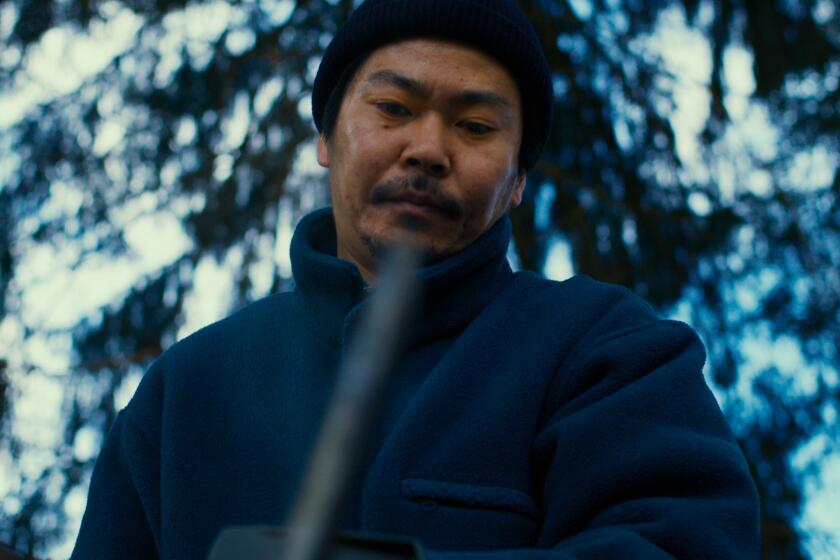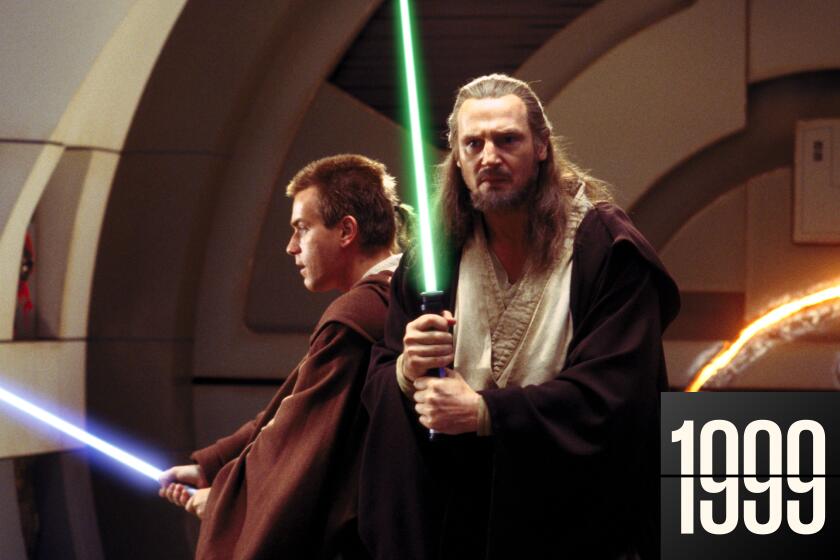MOVIE REVIEW : ‘Shallow Grave’ a Fable of Love
When a film is as gentle and caring as Kenneth Bowser’s adaptation of James Purdy’s 1976 novel, “In a Shallow Grave” (selected theaters), you want to like it. But the harder you try, the more aware you become of why it doesn’t work.
Bowser’s initial miscalculation is to approach Purdy’s poetic fable of love, sacrifice and redemption as if he were transferring it to the stage rather than the screen. This results in heavily literary dialogue, and imagery that remains verbal rather than visual.
An earnest Michael Biehn stars as Garnet Montrose, a Guadalcanal veteran whose left side is covered with scar tissue. He’s holed up in his ancestral Virginia farmhouse, where a youthful runaway named Potter Daventry (Patrick Dempsey) has sought refuge, becoming his devoted servant. Daventry’s most important task is to deliver Garnet’s love letters to Georgina Rance (Maureen Mueller), a beautiful war widow who lives a half-mile down the road.
An emotional triangle quickly develops between Garnet, Daventry and Georgina, but Garnet fails to comprehend its true nature. (These highfalutin names, by the way, are indicative of a certain pervasive preciousness that runs throughout the film.)
“In a Shallow Grave” (MPAA-rated R for adult themes, strong language) essentially belongs to a sentimental genre in gay fiction in which disfigurement in a beautiful man is used to heighten his attraction, emotional as well as sexual. (Tennessee Williams’ short story “One Arm” is the most famous example.)
Sure enough, the outlines of Garnet’s handsome, regular features remain miraculously intact beneath that scar tissue. So what’s keeping the lonely, love-starved Georgina, a war widow twice over, from coming to see Garnet, especially when he is not really hideous to behold?
Alas, Bowser fails to generate emotional impact not only when they do at last come face to face, but also when Daventry finally declares his love for Garnet. Surely a rural Southern heterosexual gentleman might be taken aback by such news even now, let alone in 1944. However, what’s most lamentable about this well-meaning film is that it is more concerned about Garnet and Georgina’s future than with Daventry’s fate, which smacks of a convenient expendability.
More to Read
Only good movies
Get the Indie Focus newsletter, Mark Olsen's weekly guide to the world of cinema.
You may occasionally receive promotional content from the Los Angeles Times.






